by Mac Tambussi ’23
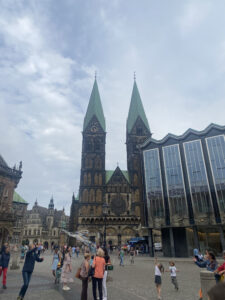 When I was picking which college to go to my senior year of high school, I knew studying abroad was a huge factor in my decision. Ultimately, I landed on Dickinson, which has great study abroad programs all over the world. Before I started school, I went to Germany in 2019 with my host family and fell in love with the country. After I returned to the U.S., I knew I wanted to come back. When I found out Dickinson had a program in Germany, I was ecstatic and had a feeling that when Junior spring came around, I would be back in the country that I grew to love.
When I was picking which college to go to my senior year of high school, I knew studying abroad was a huge factor in my decision. Ultimately, I landed on Dickinson, which has great study abroad programs all over the world. Before I started school, I went to Germany in 2019 with my host family and fell in love with the country. After I returned to the U.S., I knew I wanted to come back. When I found out Dickinson had a program in Germany, I was ecstatic and had a feeling that when Junior spring came around, I would be back in the country that I grew to love.
When going through the application process, I knew the program was in Bremen, but to be honest, I did not know Bremen existed. Well fast forward to today, I consider Bremen my second home. In the six months I spent in Bremen, I formed friendships, tried new activities, learned more about the culture, and overall just had a blast.
The friendships I made, both people from Dickinson and the USA on the trip, and those from Germany and all over the world, have made a huge impact on my life. My friends and I went on many trips to many different cities/amusements across Germany and Europe such as Cologne, Hamburg, Bonn, Heide Park, Bremerhaven, Berlin, Vienna, and Amsterdam. In addition in Bremen, we were able to travel to different parts of the city, where we would try new restaurants, go shopping, help in service activities, watch soccer, and go to clubs (my personal favorite was Modernes). In addition to that, I and two of my friends joined the rugby team, where we were able to form a solid friendship with them also.
The school aspect was also really cool. For the first two months, we spent time with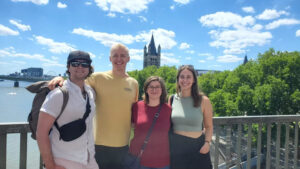 both Aristoles and Goethe Institute learning the language. This was because almost all of our classes at the University of Bremen were in German. After becoming proficient in German, we began our classes. Three of my classes were business related and one was Political Science related. They were all super interesting and gave me a different perspective on how higher education is in Germany and different viewpoints. All in all, I had a great learning experience in Germany.
both Aristoles and Goethe Institute learning the language. This was because almost all of our classes at the University of Bremen were in German. After becoming proficient in German, we began our classes. Three of my classes were business related and one was Political Science related. They were all super interesting and gave me a different perspective on how higher education is in Germany and different viewpoints. All in all, I had a great learning experience in Germany.
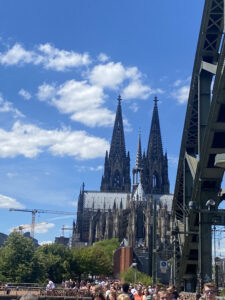 Lastly, learning about the culture and trying new foods was a highlight. Having Doner Kebab, Wiener Schnitzel, and Wurst was awesome. Everything was delicious! Trying different things, playing new games, and experiencing the culture from a first-hand experience were amazing. The Dickinson in Germany study abroad experience is one I will never forget. I was able to try so many different things and get to meet and see so many friends! I liked it so much, that I am currently applying for a Fulbright Grant to be an English Teaching Assistant in Germany. I can’t wait to come back to visit. Till next time Germany!
Lastly, learning about the culture and trying new foods was a highlight. Having Doner Kebab, Wiener Schnitzel, and Wurst was awesome. Everything was delicious! Trying different things, playing new games, and experiencing the culture from a first-hand experience were amazing. The Dickinson in Germany study abroad experience is one I will never forget. I was able to try so many different things and get to meet and see so many friends! I liked it so much, that I am currently applying for a Fulbright Grant to be an English Teaching Assistant in Germany. I can’t wait to come back to visit. Till next time Germany!

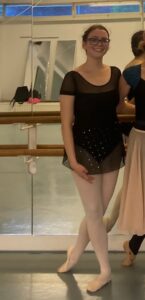 students to take for a relatively low price. Dickinson will also reimburse you up to a certain amount to take these courses. You can see a list of past/current course offerings on their
students to take for a relatively low price. Dickinson will also reimburse you up to a certain amount to take these courses. You can see a list of past/current course offerings on their 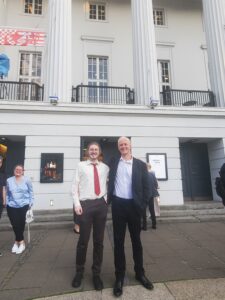 classic German musical play “Die Dreigroschenoper” (The Threepenny Opera), written by Bertolt Brecht with music composed by Kurt Weill and first performed in Berlin in 1928. This was our first time attending a theatrical performance in Bremen. Having only read a brief synopsis of the narrative beforehand, we came to find that the production was much less of what one might expect from an opera but rather a musical supported by a modestly sized jazz ensemble (with no conductor!). I wouldn’t call myself an avid musical goer, but I was enthralled by the lively assortment of characters and fantastic music.
classic German musical play “Die Dreigroschenoper” (The Threepenny Opera), written by Bertolt Brecht with music composed by Kurt Weill and first performed in Berlin in 1928. This was our first time attending a theatrical performance in Bremen. Having only read a brief synopsis of the narrative beforehand, we came to find that the production was much less of what one might expect from an opera but rather a musical supported by a modestly sized jazz ensemble (with no conductor!). I wouldn’t call myself an avid musical goer, but I was enthralled by the lively assortment of characters and fantastic music. I was stunned by the singing voices of Polly and Macheath, whose dialogue and ballads easily stole the stage whenever they appeared. In between these moving scenes Evan and I couldn’t help but chuckle at every move of the corrupt chief of police “Tiger” who broke the fourth wall by having a short interaction with the drummer, breaking one of their cymbals. I also found it heartwarming that since it was the last performance of this production, the director bade thoughtful farewells to several cast members leaving the theater company. Later that evening I couldn’t help but hum ‘Die Moritat von Mackie Messer’ to myself.
I was stunned by the singing voices of Polly and Macheath, whose dialogue and ballads easily stole the stage whenever they appeared. In between these moving scenes Evan and I couldn’t help but chuckle at every move of the corrupt chief of police “Tiger” who broke the fourth wall by having a short interaction with the drummer, breaking one of their cymbals. I also found it heartwarming that since it was the last performance of this production, the director bade thoughtful farewells to several cast members leaving the theater company. Later that evening I couldn’t help but hum ‘Die Moritat von Mackie Messer’ to myself.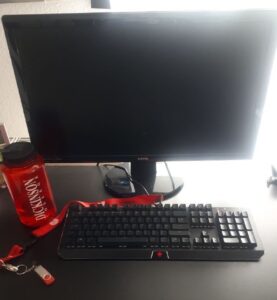
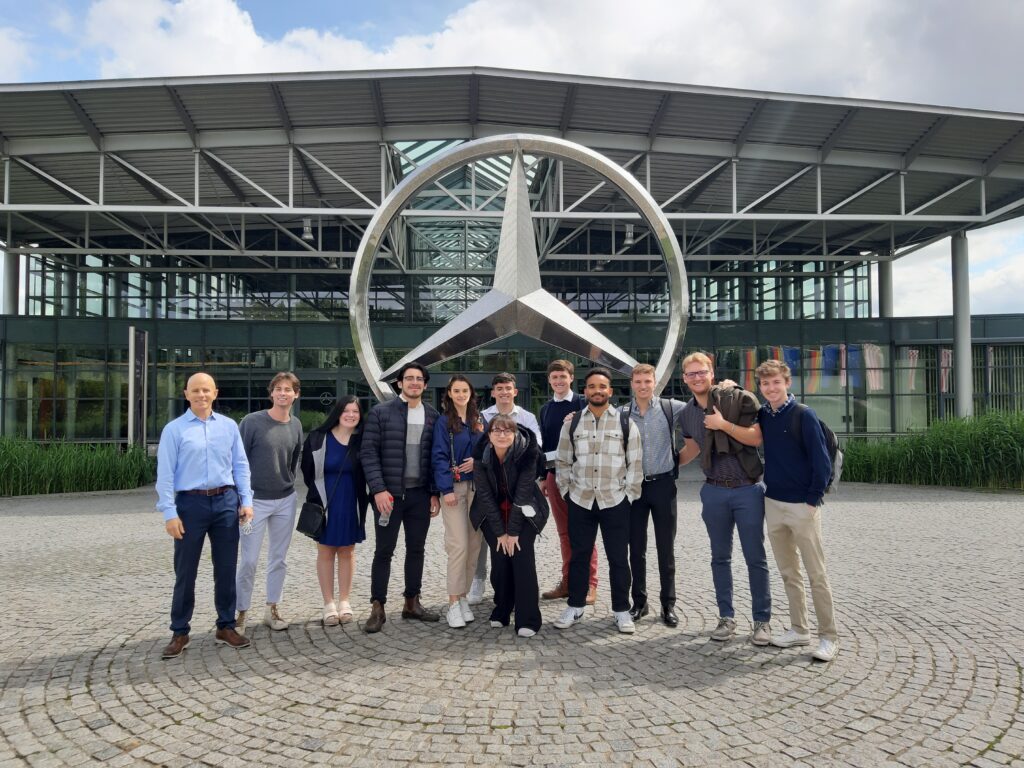
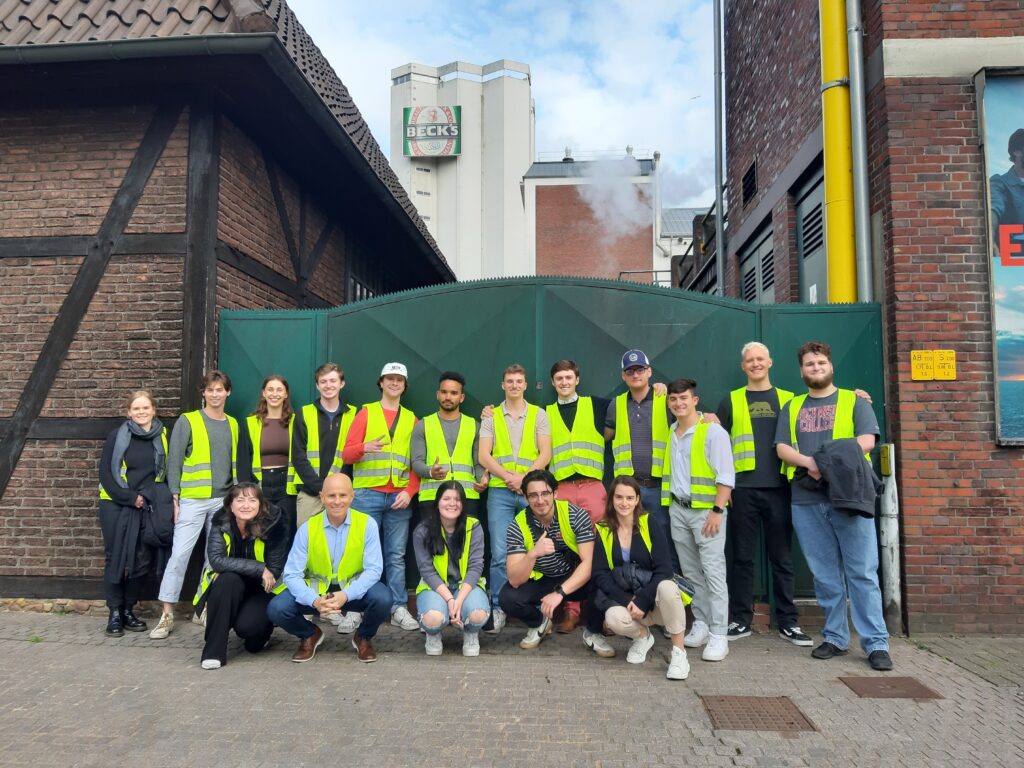
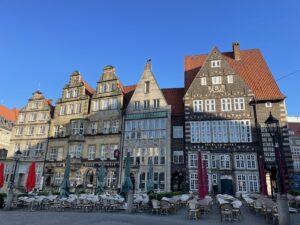
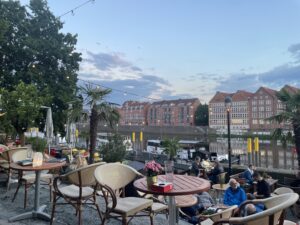 “I was initially very nervous about traveling to Germany. Not only had I never traveled out of the country, but I also didn’t know any German. Sophie’s expertise (an exchange student from Bremen University) calmed my nerves a bit, but I was still anxious about the trip.
“I was initially very nervous about traveling to Germany. Not only had I never traveled out of the country, but I also didn’t know any German. Sophie’s expertise (an exchange student from Bremen University) calmed my nerves a bit, but I was still anxious about the trip.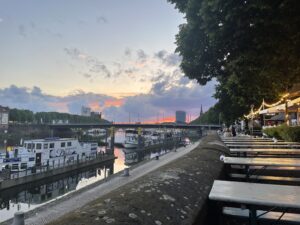
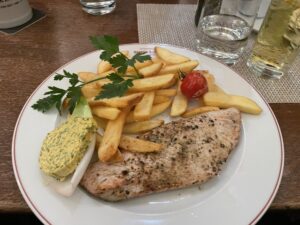 respectful manner.
respectful manner.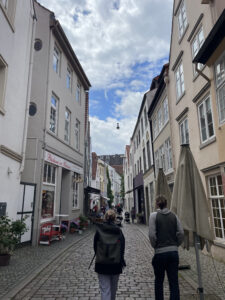
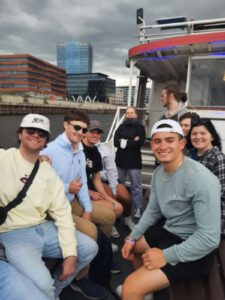
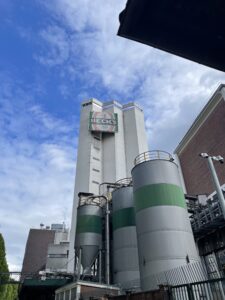
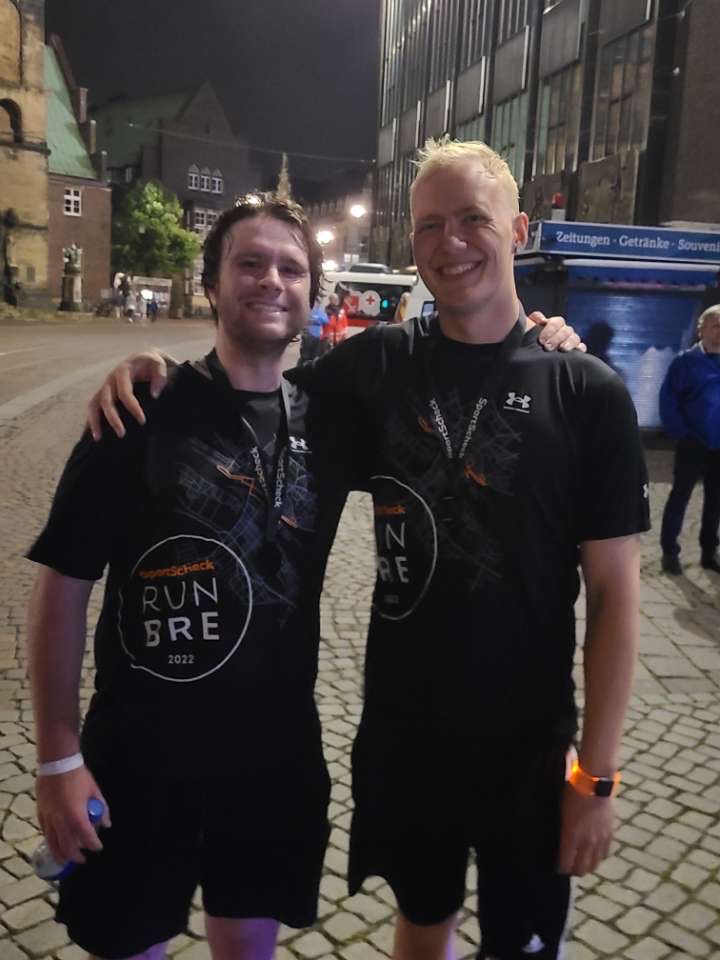
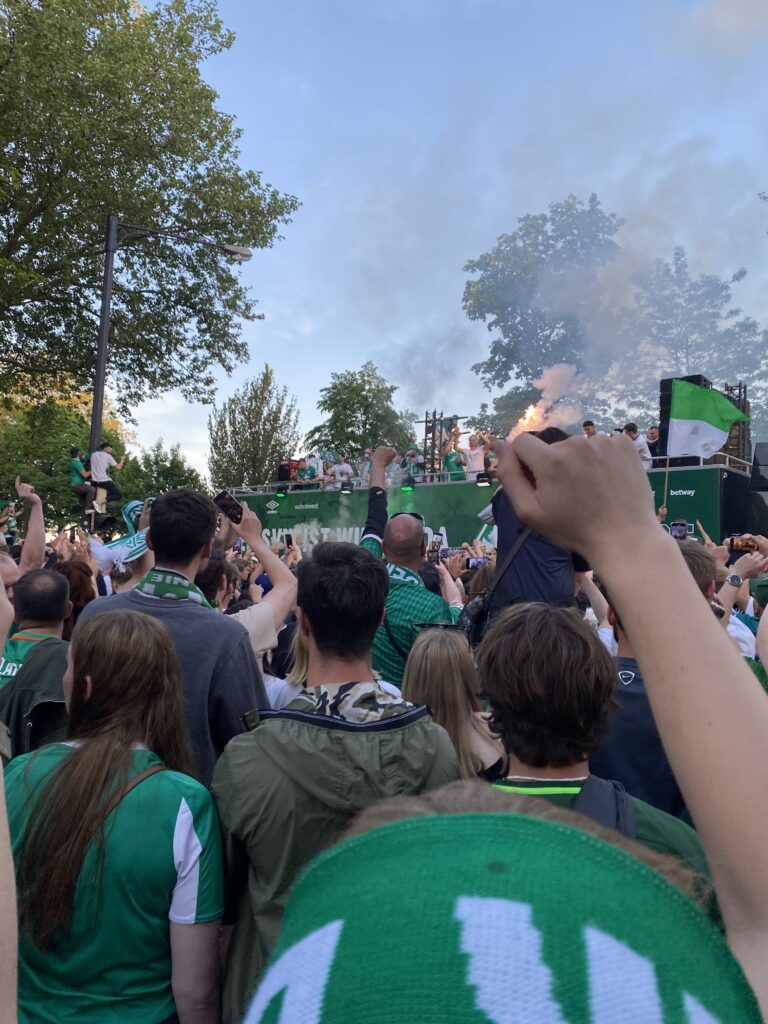
 At Dickinson, I’m majoring in International Studies and in German, but my experience out of the United States amounted to less than a week spent between Victoria in British Columbia and a jaunt across the New York-Canada border to see the Canadian side of Niagara Falls. Flying in and out of the Frankfurt airport represented the first and second international flights of my life.
At Dickinson, I’m majoring in International Studies and in German, but my experience out of the United States amounted to less than a week spent between Victoria in British Columbia and a jaunt across the New York-Canada border to see the Canadian side of Niagara Falls. Flying in and out of the Frankfurt airport represented the first and second international flights of my life.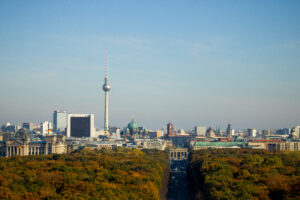 Oftentimes in city centers in Germany, if you sound like an American tourist, people will respond to you in English. However, I’m quite proud that the grocery cashiers and coffee shop baristas rarely switched from German when talking with me. I became confident enough with traveling by train and tram too, that, multiple times, I was approached with questions about directions and train arrival times and whether certain tickets worked with Deutsche Bahn or not. I usually stumbled through my German responses, but I always felt flattered that at least it seemed like I was from around there.
Oftentimes in city centers in Germany, if you sound like an American tourist, people will respond to you in English. However, I’m quite proud that the grocery cashiers and coffee shop baristas rarely switched from German when talking with me. I became confident enough with traveling by train and tram too, that, multiple times, I was approached with questions about directions and train arrival times and whether certain tickets worked with Deutsche Bahn or not. I usually stumbled through my German responses, but I always felt flattered that at least it seemed like I was from around there.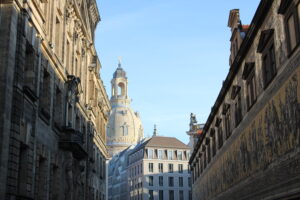 What I most appreciated about my time abroad, though, was the separation from my normal life and usual perspective on things. It was a double-edged sword, as I did find being away from my usual support system quite difficult, but I also learned about myself as I was able to view my life in the US from an almost third-person perspective. I thought a lot about how I’d ended up in Germany, how I’d become who I am, and what I want next from myself. In my classes, I learned about the last century of international relations from a German perspective, discussed the history of the relationship between Germany and the US, and examined the histories of immigration and the social welfare state within Germany.
What I most appreciated about my time abroad, though, was the separation from my normal life and usual perspective on things. It was a double-edged sword, as I did find being away from my usual support system quite difficult, but I also learned about myself as I was able to view my life in the US from an almost third-person perspective. I thought a lot about how I’d ended up in Germany, how I’d become who I am, and what I want next from myself. In my classes, I learned about the last century of international relations from a German perspective, discussed the history of the relationship between Germany and the US, and examined the histories of immigration and the social welfare state within Germany.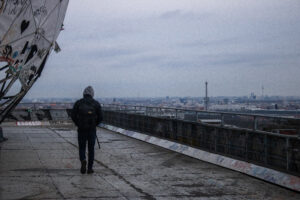 Throughout my time abroad, I took a bunch of photos and expanded my knowledge of popular German music. I also developed a closer relationship with my parents, despite being an ocean apart. I hosted my girlfriend, who I originally met in a German 101 course, for Christmas break, and showed her around Bremen and Heidelberg. And, lastly, I learned how to wear a scarf properly, bought a turtleneck, and once walked over an hour from the city center to my WG in the dark with my roommates after we accidentally missed the last tram of the night.
Throughout my time abroad, I took a bunch of photos and expanded my knowledge of popular German music. I also developed a closer relationship with my parents, despite being an ocean apart. I hosted my girlfriend, who I originally met in a German 101 course, for Christmas break, and showed her around Bremen and Heidelberg. And, lastly, I learned how to wear a scarf properly, bought a turtleneck, and once walked over an hour from the city center to my WG in the dark with my roommates after we accidentally missed the last tram of the night.